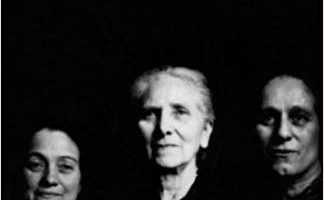Compassionate Massage for Bosnian Refugees
Growing up in Baltimore after World War II, Michele Herling was encouraged by her family and Hebrew school teachers to make the world more just. Years later, when Herling heard news reports about Bosnians losing their villages and being tortured and killed, the massage therapist felt “an intense pull to do something. I couldn’t stand around.”
In early 1995, Herling traveled to Hungary to offer “bodywork” to refugees. The Nagyatad Refugee Camp, in Hungary near the Croatian border, housed 1,200 primarily Muslim Bosnians in old army barracks on two acres. Many had endured forced labor, starvation and torture. They had lost relatives—in some cases their entire families.
“When I arrived, a nurse and a doctor asked me, ‘What can you do for us?’ I knew their need was incredible. I said, ‘I do different types of bodywork.’ It seemed like such a tiny thing to offer.” Herling began to describe her techniques. “But my translator couldn’t follow,” she recalls. “He’d learned English from rock songs and television. So I just said, ‘I want to give massage. To help people relax.'”
That evening, nurses brought a woman with intense leg pain to the massage therapist. “I worked on her, and the next day her husband hugged me and enthusiastically communicated through sign language that his wife felt almost no pain.”
Naming her project Compassionate Touch, Herling helped treat refugees’ chronic migraine headaches, panic attacks and insomnia. The traditional Muslim women were cautious at first, and let Herling work only from their knees down. But by the end of her stay, they asked her to touch their backs, too.
Herling has been invited back to the refugee camps several times. In 1996, she gave a workshop to a group of children. “Immediately, they began digging their fists into each other. I told them it wasn’t as extreme as shooting someone, but it was a beginning stage of violence.”
Setting some rules for respectful touch, Herling instructed the children in massage techniques she playfully called the “catwalk” and “kneading the bread.” She asked them what might happen if they did this three times a week with their families. “They answered the same way as children in New Mexico,” where Herling lives, “when I ask this question. They said, ‘People would be nicer to each other. We’d have peace.'”
Along with yearly trips to Bosnian refugee camps, Herling now offers programs to American school-age children geared toward enhancing trust, relaxation and nurturing. One child whose brother had been involved in a drive-by shooting “really felt soothed by the workshop,” his Santa Fe elementary school teacher remembers. “I saw he’d had an experience of being heard at a really basic level.”
“This work has reawakened my connection to Judaism,” Herling says. The lessons she learned in Hebrew school now have a personal meaning. “I’m finding my way of tikkun olam, and sharing in community my sense of a compassionate Jewish God.”
For more information, contact Michele Herling, 903 West Alameda, Suite 119, Santa Fe, NM 87501.


